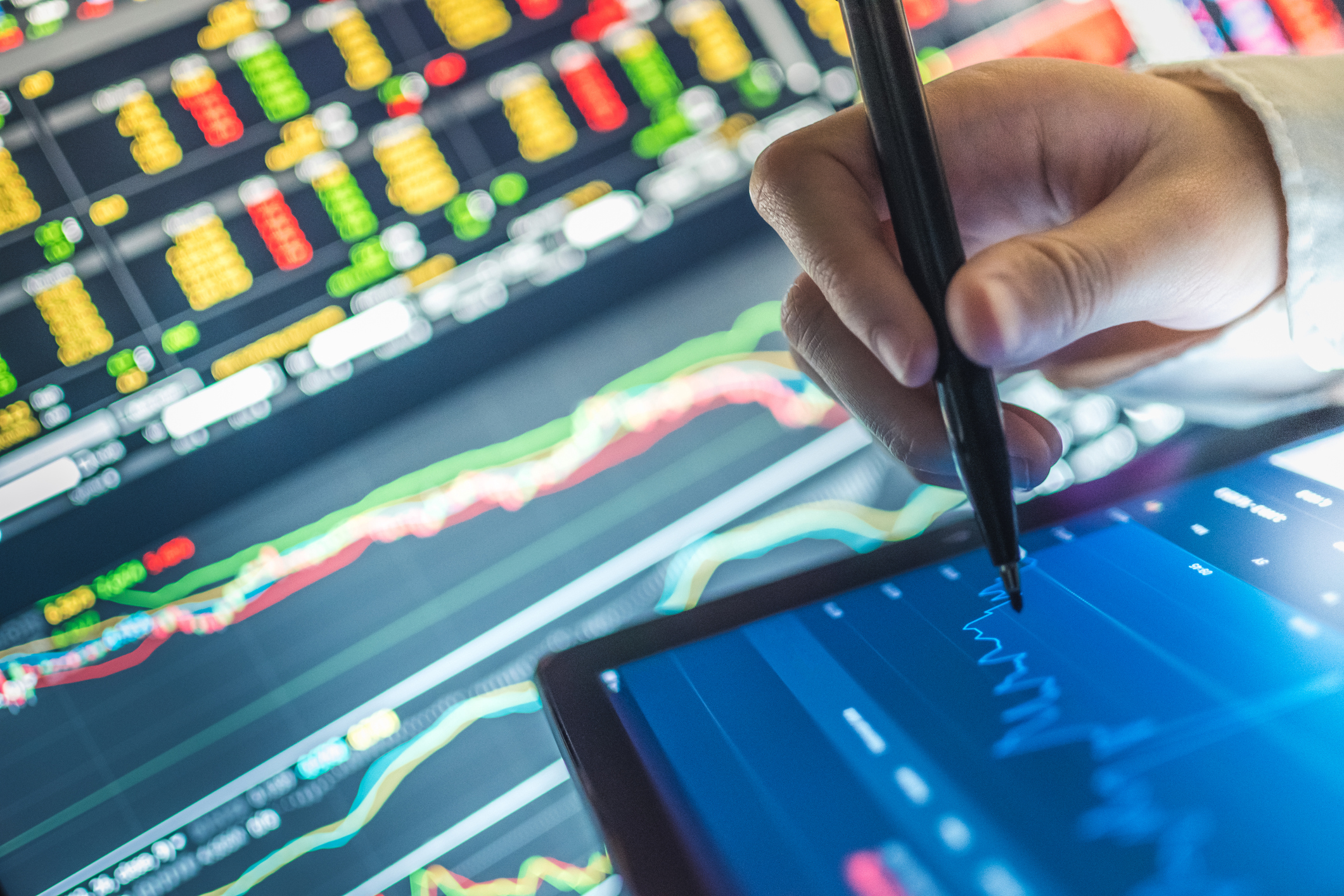About Robinhood
With its IPO, Robinhood, one of the largest neobrokers in the United States, set a major milestone in the democratization of the financial market. Aiming to give private investors the same access to the financial market as that available to professional investors and thus enabling retail traders to participate directly in IPOs, for example, Robinhood reserved 35% of the shares in its own IPO for private investors.<br><br>This exceptionally high percentage (only 10-20% are usually intended for retail traders) as well as the preceding IPO roadshow, which contrary to common practice, was a publicly accessible streamed presentation (and not reserved for institutional investors), demonstrate, among others, the growing opportunities in the market for private and retail traders.

Democratization of the financial market
Hello Mr. Brahm, what does the “democratization of the financial market” imply and what does Robinhood’s IPO mean in this context?
Customer needs have changed radically, just as traditional business models of banks are doing. The boundaries between profitable business with affluent customers and still low-margin mass business are becoming blurred – not least due to advancing digitalization and automation.
Customer demand increasingly rules the markets. These circumstances are all drivers of the trend toward democratization of the financial market.
What is characterizing the market at this moment in time? A persistent and sustained low interest rate policy, faltering revenue structures, increasing competitive pressure from neobanks and neobrokers, an innovation and digitalization wave, albeit countered by an investment backlog in the use of new technologies, the emergence of new asset classes and – most importantly – the significant change in customer behavior. The coronavirus pandemic has accelerated many of these developments.
But basically, these changes have been going on for more than 20 years. Direct banks and online brokers were already established in the early 2000s. At that time, this seemed like a revolution, but today they are actually part of the traditional banking industry.
N26 also emerged years ago as the first smartphone bank. Since then, it has very consistently served the customer needs of the new generation and continues to develop along with this customer segment.
There are also different business models based on automated robo-advisory solutions, which in turn serve different customer needs and target groups.
At present, the new neobanks and neobrokers, such as Robinhood or Trade Republic, are using their execution-only approach to attack not only the traditional banks, but also the long-established direct banks and direct brokers.
Whether these entirely new models will prove to be sustainably profitable remains to be seen, but more and more customers become interested. The question is probably not if, but when these models will succeed.
In my view, democratization of financial markets actually means that customer demand determines where the journey goes.
Those neobrokers or discount brokers, who only offer low-cost execution of trades but no advisory business, reinforce the democratization trend.
In this context, I am convinced that hybrid business models are also growing in importance. The basis of these models is the industrialization and automation of banking and back-office processes.
The willingness of financial institutions to adopt the open banking principle is also an important element in fulfilling new customer demands. The same applies to their commitment to ecosystems, which make it possible to access innovations more quickly and offer them to their own customers.
What is revolutionary about this step and why wasn’t it taken in the past?
This step is not that revolutionary. Online brokers and banks have been around for a long time. Just think back to the mid-1990s, when a handful of young entrepreneurs attacked the traditional banking market.
What we now call neobrokers and neobanks is really just a further development of the former models to include digitalization, innovation and pricing aspects. I would rather call it an evolution than a revolution.
What are Robinhood’s intentions with its IPO and how strong is the effect it will have on future IPOs?
The IPO is no doubt intended to also fulfill marketing and brand-building functions for Robinhood.
However, I am convinced that growth financing does not require a broad-based IPO. As we observe with other neobanks and neobrokers, it is not difficult to find investors. To achieve these goals, it is actually important to have a sustainable, resilient revenue stream and the ability to scale the respective business model.
BankingHub-Newsletter
Analyses, articles and interviews about trends & innovation in banking delivered right to your inbox every 2-3 weeks
"(Required)" indicates required fields
What effect does the Robinhood IPO have on the primary market business of the established players?
There is no doubt that the IPO has an enormous marketing effect. At the same time, however, this also benefits the existing neobrokers. This bodes well for the German capital market, especially since Robinhood itself is not yet active in Germany.
Customers who are generally interested in this execution-only segment are now likely to take a closer look at the market. This may also lead to greater awareness of the investment types in the capital market.
Compared with the Anglo-Saxon markets, German customers in particular still have some catching up to do when it comes to asset accumulation. Up to now, less than every tenth euro saved in Germany has been invested in shares or other securities.
What other types of companies or industries would be candidates for a similar IPO?
Well, that can only be answered in economic terms. If private investors also participate in productive assets alongside institutional investors – which was, after all, Robinhood’s declared goal – then that would be a first step in the right direction.
Private investors will also have to weigh the opportunities and risks. Personally, I would always opt for sustainable and viable business models as well as for companies whose founders have a vision and proven innovative strength. In other words: we should by now have learned from the mistakes of the “new market”.
Neobroker market
To date, neobrokers only have a small 5% market share. Do you think that Robinhood’s IPO and the general low-cost business model will enable neobrokers to significantly expand their market share?
Comparable business models are already established on the market. Neobrokers will certainly gain market shares by pursuing an aggressive pricing strategy. Again, it’s worth taking a look back at the 1990s.
Online brokers of that time initially gained market share by means of aggressive pricing models, among other things, but then successively expanded their product range in order to increase the contribution margin from the customer relationship. They then raised their prices for their core services and increasingly charged for additional services.
What kind of risks, but also opportunities, do these changes in market structures present for private and retail traders?
If the available business models can be scaled, if they are compliant with regulatory requirements, and if there are always innovations in the form of new products and services, they will benefit investors.
What are the next relevant and possibly already identifiable drivers in this market in the medium to long term?
I would say: crypto, crypto, and crypto again. Distributed ledger or blockchain technology is not only the basis of all cryptocurrencies, it also allows the tokenization of a wide variety of assets.
Security tokens of this kind make it possible to trade small fund shares as well as previously illiquid assets – for example, in the form of tiny digital ownership shares in a Picasso painting or a luxury property at Lake Starnberg.
Crypto assets are the future. This, too, is an important aspect of the democratization trend in the financial market.






